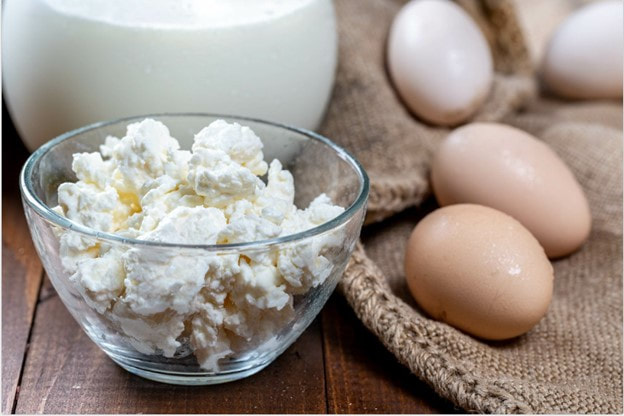 Kate Harvison, MSc In today’s health-conscious world, the term “high protein” is a marketing staple, appearing everywhere from food packaging to fitness trends. It seems like anything you eat or drink, from cereal to ice cream, and even bottled water, has a high-protein alternative on the market. When you open social media, you likely will see influencers promoting their new favorite high-protein recipe that helps them meet their health goals. The International Food Information Council’s 2024 Food and Health Survey found that 71% of American consumers were trying to eat more protein. Yet, according to the U.S. Department of Agriculture, most Americans meet or exceed their dietary recommendation for protein. So, why the sudden trend to consume as many high protein foods as we can? To really understand the rise of protein as America’s favorite macronutrient, we need to look at the history of diet culture itself. Protein is the only macronutrient that past fad diets, like Atkins, keto, and paleo all agreed was not only “safe,” but important to eat if you wanted to achieve your weight and health goals. Unlike fats in the 90s, and carbohydrates in the 2000s, there has never been a time when the popular healthy diet option is to eat “low protein.” Even as the potential physical and mental health consequences of following such restrictive diets, like Atkins, are more well-known, it’s hard to let go of the negative associations we have with fats and carbohydrates. Protein has not only escaped having an outdated, negative reputation, but it’s also acquired an overwhelming positive one on social media for weight management. Do you want to lose fat and build muscle without having to restrict your favorite foods? According to popular diet influencers, the solution is simple; pour a protein shake into your favorite coffee or stir some cottage cheese into your pasta sauce. Clinical studies have found that consuming high-protein meals can be effective for weight loss due to their ability to increase satiety, which helps people maintain a calorie deficit. These findings, however, are not conclusive and are limited to the effects of following these diets for a short term. There is also concern that following a high-protein diet long term may increase the risk for cardiovascular disease because it leads to reliance on eating foods high in saturated fats and low in complex carbohydrates. For this reason, the source of protein, rather than the amount, is a major factor that makes a difference in overall health. Eating healthy protein sources like beans, nuts, fish, or poultry instead of red and processed meat can reduce the risk of several diseases and premature death. Furthermore, while following a specific diet may help with weight management, it’s important to remember that there is no singular diet that is guaranteed to result in weight loss. Successful weight loss and management rely on following a reduced-calorie diet that users can maintain long term. So, while high-protein meals may be a beneficial tool for those trying to lose weight or build muscle, they are certainly not necessary for everyone. Even though protein flexes its muscle as people’s favorite macronutrient, keep in mind that eating exclusively high-protein foods does not equate to a high-quality diet. Ultimately, fad diets come and go, but the healthiest diet for most people remains the same; a diverse one that is primarily made up of nutrient dense, whole foods and contains a balance of protein, fats, and fiber. Author
Kate joined CoRAL in 2023 as a Research Assistant with Project Viva. She completed her B.S in Biological Anthropology at the George Washington University and her MSc in Biosocial Medical Anthropology from University College London in 2023. During her time at UCL she conducted research for her dissertation on pregnant women’s experiences using online forums to answer questions about their symptoms and seek social support. In her free time, she enjoys reading, cooking and long walks outside.
0 Comments
Your comment will be posted after it is approved.
Leave a Reply. |
©2017 WeighingInBlog. All rights reserved. 401 Park Drive, Boston, MA




 RSS Feed
RSS Feed

